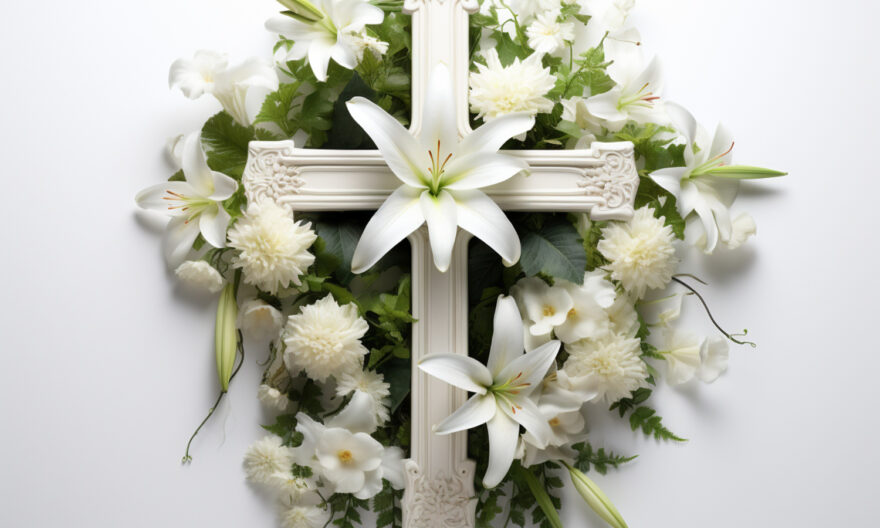
They say there are only two certainties in life – death and taxes. Well, if taxes leave you wanting to join the great beyond, funerals in Singapore definitely won’t provide any relief. With a dizzying array of customs, traditions, and stratospheric costs to navigate, planning a proper send-off can feel more stressful than soothing. Fortunately, Christian funeral service offers a framework to guide you through the emotional and logistical turmoil. And when it comes to reining in those pesky funeral expenses, there are some savvy ways to keep spending down to earth. Let’s take a look at the rich traditions of Christian funerals, and how to honor them without breaking the heavenly bank.
Meaningful Traditions That Bring Comfort
For Christians, funerals serve as a way to grieve, find closure, and celebrate the hope of eternal life. Certain ceremonial elements and symbolic practices can bring a sense of reverence and deeper meaning to the proceedings.
The Wake and Visitation
After death, it’s common to hold a wake or visitation where the deceased lies in repose in an open or closed casket. Loved ones can view the body one last time and offer prayers, flowers, and their final goodbyes. It’s a solemn time for quiet reflection on the departed soul.
Funeral Service
The main event is the funeral service, often held in a church or funeral home chapel. Through scripture readings, hymns, eulogies, and a sermon, the service allows mourners to collectively celebrate the deceased’s life while contemplating eternity. Spiritual music and prayers for the soul’s eternal rest are also hallmarks.
Committal Service
After the service, there’s usually a brief committal or graveside ceremony where final prayers are offered and the casket is interred or cremated remains are inurned. Placing flowers or mementos on the final resting place can provide a meaningful sense of closure.
Enduring Symbols
Throughout the funeral, certain visual icons emerge as sacred symbols – from the open Bible representing the Word of God to flickering candles evoking the Light of Christ. The profound use of holy water, lilies, crosses, doves, and other traditional Christian imagery honors the spiritual journey.
The Subtle Art of Saving Souls (and Dollars)
While the symbolic and ceremonial elements of Christian funerals offer invaluable solace, the practical realities of high costs can quickly sour the grieving process. Thankfully, there are ways to honor sacred customs while avoiding financial ruin.
Shop Around for Savvy Pricing
Don’t just accept sticker prices from the first funeral home you consult. When it comes to basic services like caskets, embalming, transportation, and venue rental – savvy shoppers can find much better deals from less extortive providers. This applies to everything from cremation packages to burial plots. Do your homework and get multiple quotes. Cost transparency (not hidden fees) should guide your selection.
Focus on What Matters Most
When it comes down to it, the symbolic meaning of a funeral doesn’t come from lavish, overly-extravagant trappings. Zero in on the core elements of tradition that provide the deepest spiritual significance. Hire an affordable funeral services. Choose a dignified yet simple casket. Splurge on beautiful flowers. Focus your budget on what truly matters rather than external frills and gilding the lily.
Embrace Customization and Personal Touches
Take advantage of opportunities to infuse the funeral with personal, meaningful touches on a budget. Create DIY photo tributes, memory boards, or slideshow memorials rather than pricey video packages. Encourage loved ones to share stories or poems rather than hiring expensive speakers. Most importantly, put the “fun” in funeral by selecting fitting, joyful music and bright, celebratory flowers that reflect your loved one’s unique spirit.
Don’t Get Duped on Extraneous Upsells
Many funeral homes aggressively push add-on services, rentals, and purchases that can inflate costs shockingly. Beware upsells on overpriced caskets, fancy limousines, elaborate catering, and other dubious “essentials.” Most of these flashy items do nothing to enhance the basic traditions of a Christian funeral. Stay focused and avoid getting nickel and dimed to death.
Take Advantage of Government Assistance
For those truly strapped for cash, Singapore offers a couple of crucial programs to ease funeral cost burdens. The Citizen Funeral Assistance Scheme provides financial relief, while the Free Cremation Service caters to extremely low-income families. There’s no shame in accepting legitimate government support – only in the soaring costs that make such assistance necessary in the first place.
Uphold Values, Not Excess
At the end of the day, Christian funerals should center on honoring the legacy and spiritual journey of the deceased. This doesn’t require wasteful excess or ostentatious displays of wealth. As one Catholic minister advises, “True Christian tradition values humility, community, and eternal hope over vapid materialism. A simple, reverent service surrounded by loved ones can uphold those values beautifully.”
The Symbolic Power of Secondary Rituals
While core funeral traditions like the wake, service, and committal hold immense spiritual weight, the meaning of Christian funerals extends beyond just those main events. A variety of supplemental practices and secondary rituals can further amplify the ceremonial resonance.
Celebratory Reception
Following services, friends and family often gather for a reception or repast. What may seem like a simple post-funeral meal actually reflects symbolic roots. In early Christian tradition, funerary meals were called “refrigeria” – literally meaning a refreshment or comfort offered to soothe grief. This convivial gathering strengthens community ties while refreshing those in mourning, honoring the bonds of fellowship.
Restorative Mourning Periods
From Judeo-Christian tradition emerged cultural norms surrounding periods of intense mourning and gradual reintegration. The initial mourning period extends through funeral preparations, the service, and subsequent days of sitting shiva – where mourners are comforted and exempted from regular routines. Then mourning transitions through milestones like the one-week, one-month, and one-year marks commemorated in many traditions.
These structured mourning phases, with varied rituals like kriah (rending of clothing), allow for an organic rhythm of grief and healing. Even small acts like lighting a yahrzeit candle on the anniversary of a death can imbue significance. By embracing the full lifecycle of sacred mourning practices, the Christian journey through loss and grief takes on deep meaning.
Sacred Mementos and Symbols
Physical objects also carry profound symbolism in Christian funeral rites. Memorial cards, funeral programs, obituaries, and the guest book essentially serve as permanent relics of someone’s life being celebrated. Holy objects distributed at services like rosaries, crosses, holy water, or funeral pebbles embody additional blessed mementos for mourners. With their enduring significance, these items help translate ceremonial meaning into lasting remembrance.
Meanwhile, small yet striking symbols continue emerging throughout the rituals – including the tear-shaped locket meant to represent Christ’s compassion. A sprig of rosemary tucked into a loved one’s hand evokes the herb’s connection to remembrance. The striking paradox of willow branches expressing both mourning and regeneration. Layers of sacred, coded meaning reflect the rich tapestry of ancient sacramental traditions.
So don’t let the trappings of materialism overshadow the true essence of Christian funeral traditions. With thoughtfulness, balance, and appreciation for meaningful rituals both large and small, you can give your loved one a dignified sendoff. One that honors their spiritual journey while also being a good steward of earthly resources. It’s all about perspective and refocusing on what truly holds sacred significance.
Also Read:- Designing a Meaningful Memorial: Free Thinker Funeral Ideas



